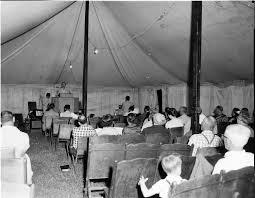A Christmas Tale that might have been
Balthazar rolled to his side. Though he had slept, he was long from home and, thus, not well rested. Besides, slumber is meant for night time. His eyes opened to barely a sliver and held there. Pulling in a slow breath he noticed – even with his sliver of vision – the light in his tent had diminished.
I must rally. The sun will soon be down, dark of night will blanket us. He smiled. Then the star will ease into view. Already pre-travel action had set in beyond the tent – servants fussing with saddle bags, a camel protesting with three loud snorts, the cinching of her belly harness.
Heydar! The call of surprise – almost of alarm – sounded beyond the tent flap. And a second time. Heydar! Wait, we are coming!
Balthazar’s eyes widened fully. Worry creased his forehead. What misfortune’s come to my foremost servant, Heydar?
The caravan – its multi-blend of culture and language – was now months into its westward trek. Balthazar – and his fellow magi (Gaspar and Melchior) to be sure – began sensing in recent days a soon arrival to their destination. Still, they could not be certain. Indeed there was little of which they were certain. Ever since leaving the familiar – the predictables of home, of family.
The one sure thing about all this – the indisputably sure thing – was the mandate, a curious stirring of destiny. They each felt it – The worship compulsion he privately tagged it. Indeed, he thought wryly – as surely as the nostrils of Gaspar’s camel expels the foulest breath of all Mesopotamia’s beasts – the magi were called Westward. A mandate. From the heavens. And after no small attention to the starry bodies and no meager energies making ready for the trek. . . Well, to this place they had come. Thus far.
Ah, but what of Heydar? And – (a secondary thought) what of tonight’s fire?.Balthazar was hurrying now toward the commotion.
The great sun was lower. A chill settling over the craggy landscape.
They had camped here in this hostile terrain from after sunup this morning – here where rocks were many and trees few. The full caravan staying put, as they had on each day previous at each day’s location. Until darkness arrived – and, with it – the star. Among the last of Heydar the servant’s tasks this day was to gather and bring firewood – for it was Balthazar and his company’s turn to make ready the fire for all the travelers.
Heydar limped into camp, aided by two companions and leaning much into a gnarled makeshift walking stick – the stick of a dead tree. It hardly seemed fit to bear his weight. Indeed, in that moment, a sharp crack – the stick snapped beneath him. Heydar staggered past the reach of his fellows and dropped to a knee. He stifled a cry and grimaced – his hand reaching low to rend comfort to his throbbing limb.
Master, Heydar called momentarily to the approaching Balthazar. Forgive me, my lord. While gathering sticks a viper startled me, I leapt. And, though spared the sting of its fang, I lost footing and plunged my ankle into a crevice, twisting it sorely. I have no wood for the fire, my lord, save for what remains of this pitiful acacia stick.
Heydar’s master consoled him briefly, ordered the others to see the servant to his tent. Then he, Balthazar, turned. Facing the way from which his servant had just come, the magi, with care, ventured forward. I am not so advanced in years to fail the task of gathering fuel for our last dining in this place. Still, the land had darkened much in these moments.
Balthazar paused. As he stood – with quiet and dark all about him – he discovered at the ground ahead of him the forming of a murky outline of his body.
Ah, my shadow! The landscape brightened. Enough to detect the terrain, and a fallen tree out ahead. Before moving to it he turned about and looked up, seeking the source of the light.
Ah, the old man smiled. Of course.
©2015 Jerry Lout


